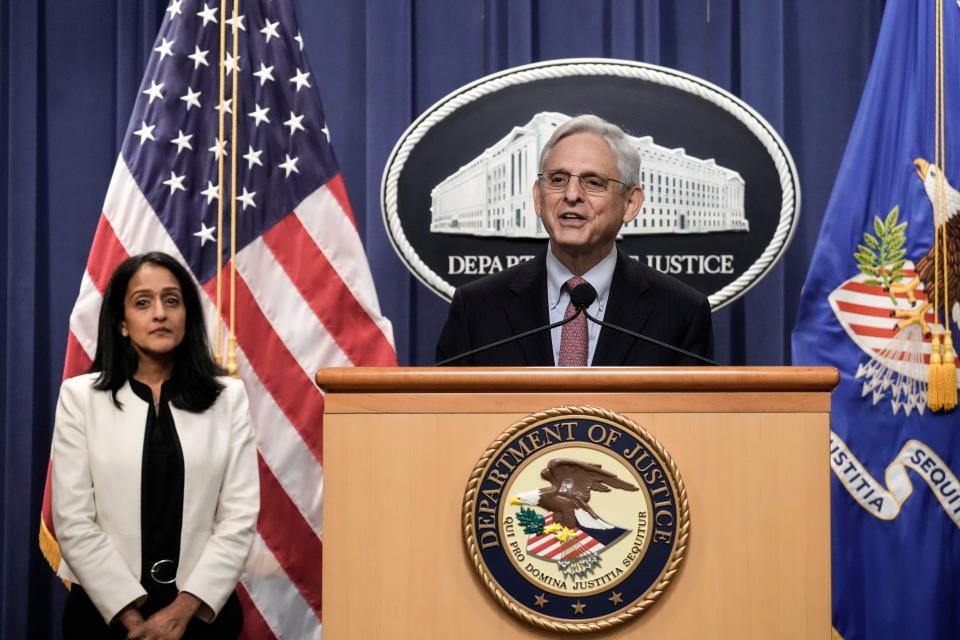DOJ challenges Idaho abortion law; first administration test since Roe v. Wade overturned
WASHINGTON – The Justice Department sued the state of Idaho Tuesday seeking to invalidate the state's restrictive abortion law, marking the Biden administration's first such challenge since the Supreme Court overturned Roe v Wade in June.
The Idaho law, set to take effect Aug. 25, imposes a near-total ban on abortion and violates federal law, which allows for the procedure in cases when emergency treatment is necessary to stabilize patients, federal officials said.
"We will use every tool at our disposal to ensure that pregnant women get the emergency medical treatment to which they are entitled under federal law," Attorney General Merrick Garland said. "And we will closely scrutinize state abortion laws to ensure that they comply with federal law.”
Idaho's restriction would only allow abortion when the mother's life is at risk or in cases of rape or incest, if the assaults had been reported to law enforcement and copies of the reports are provided to the abortion providers.
Idaho Attorney General Lawrence Wasden called the Justice action "a politically motivated lawsuit."
Before the complaint was filed, Wasden said federal officials never sought to discuss their differences with state authorities or "engage Idaho in a meaningful dialogue on the issue."
Instead, the Idaho official said the "federal government has chosen to waste taxpayer dollars on an unnecessary lawsuit.”
Garland cited the Emergency Medical Treatment and Labor Act, arguing that the federal law pre-empts the looming state measure.

More: What does overturning Roe mean? A breakdown of the Supreme Court's abortion ruling
More: Report: Roberts tried to persuade rest of Supreme Court to keep Roe v. Wade in place
The federal law, officials said, requires hospitals that receive Medicare funds to provide "necessary stabilizing treatment to patients who arrive at their emergency departments while experiencing a medical emergency."
"When a physician reasonably determines that the necessary stabilizing treatment is an abortion, state law cannot prohibit the provision of that care," the government contends. "The statute defines necessary stabilizing treatment to include all treatment needed to ensure that a patient will not have her health placed in serious jeopardy, have her bodily functions seriously impaired, or suffer serious dysfunction of any bodily organ or part."
Health and Human Services Secretary Xavier Becerra said the federal law is "clear."
"Patients have the right to stabilizing hospital emergency room care no matter where they live," Becerra said. "Women should not have to be near death to get care. The Department of Health and Human Services will continue its work with the Department of Justice to enforce federal law protecting access to health care, including abortions.”
'Trigger laws': Legal battles over abortion 'trigger laws' continue across US: What to know, state by state
This article originally appeared on USA TODAY: DOJ challenges Idaho abortion law; first test since Roe overturned
